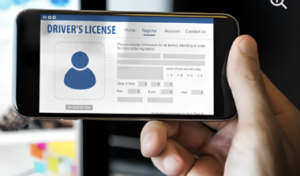First Offense DUI Laws, Charges & Penalties in California
Do you know what the legal consequences are for a first offense DUI in California? Understanding the charges and penalties is crucial for individuals facing this situation.
In Los Angeles, a first offense DUI involves two separate legal actions: criminal court and the California Department of Motor Vehicles (DMV). Both are equally important, and individuals will need strong legal representation to navigate the process effectively.
One possible outcome is the suspension of the driver’s license, which can greatly impact daily responsibilities. It is highly recommended for those facing first offense DUI charges in Los Angeles to consult with an experienced DUI attorney.
This article will provide an overview of the DMV license suspension hearing process, the criminal court proceedings, as well as the consequences and punishments that can be expected. Additionally, it will touch upon the penalties for second and third offense DUIs, which are even more severe.
Overview of DUI Laws
DUI laws in California encompass a comprehensive set of regulations and penalties for individuals charged with driving under the influence. For a first offense DUI, individuals may face both criminal court proceedings and a separate hearing with the California Department of Motor Vehicles (DMV). It’s important to note that both actions carry equal weight and should be approached with a dynamic defense representation.
In terms of charges, a first offense DUI in California is typically prosecuted under California Vehicle Code sections 23152 or 23153, with specific subdivisions determined by the circumstances of the case. Factors such as prior criminal history and injuries to victims can influence the charges brought against the individual. The location of the arrest determines the court appearance, with the DUI arraignment scheduled at a specific Los Angeles Superior Court.
The penalties for a first offense DUI can be significant. Mandatory punishments for conviction often include license suspension and fines. It’s also worth noting that reporting a conviction to the DMV triggers the license suspension. In addition to these penalties, there may be imprisonment, probation, and participation in education programs.
It is important to keep in mind that the consequences and punishments for a first offense DUI can vary depending on the specific circumstances of the case and the location of the court. Consulting with an experienced DUI attorney is highly recommended to understand the potential outcomes and navigate the legal process effectively.
Penalties for 1st Offense DUI
A first offense DUI in California carries potential penalties that can significantly impact an individual’s life. It’s important for individuals facing such charges to seek legal representation to navigate the complex legal process. After a DUI arrest, individuals are typically issued a temporary license, allowing them to continue driving for a limited period. Within 10 days of the arrest, it’s crucial to request a DMV hearing to challenge the automatic suspension that will be imposed if no action is taken. Even if the DUI matter is still pending, the DMV can still impose an Administrative Per Se (APS) suspension. However, after a 30-day period of no driving, individuals may be eligible for a restricted license.
In addition to the DMV process, individuals must also navigate the criminal court system. The specific court appearance will depend on the location of the arrest, with the DUI arraignment scheduled at a specific LA Superior Court. The criminal court will impose sanctions and penalties upon conviction, including license suspension and fines. It’s important to note that reporting the conviction to the DMV triggers the license suspension.
The consequences and punishments for a first offense DUI in Los Angeles are determined by the California Vehicle Code and the circumstances of the case. Factors such as prior criminal history and injuries to victims can affect the charges. The court location may also influence the potential for reduced charges. Punishments can include imprisonment, fines, probation, and education programs.
It is vital to understand that second and third offense DUIs carry even harsher penalties, including longer probation periods, mandatory attendance of longer driver’s education courses, and potential incarceration for up to three days (second offense) or up to one year (third offense). Repeat offenses also often require the installation of an ignition interlock device on the vehicle.
DMV License Suspension Hearing
During a first offense DUI in California, individuals are required to attend a DMV license suspension hearing, typically within 10 days of their arrest, in order to challenge the automatic suspension that will be imposed if no action is taken.
After being released from custody, individuals are issued a temporary license, which allows them to drive for 30 days. In order to contest the automatic suspension, individuals must request a DMV hearing within the given timeframe. It’s important to note that if no hearing is requested, the automatic suspension will go into effect.
It’s also worth mentioning that the DMV can impose a suspension even if the DUI matter is still pending. However, if the individual successfully challenges the suspension at the hearing, they may be eligible for a restricted license after a 30-day period of no driving.
This restricted license allows them to drive to and from work, school, and any necessary medical appointments related to their pending DUI matter.
Criminal Court Arraignment
The defendant’s appearance in criminal court for their first offense DUI is known as the arraignment. During this stage of the court process, the defendant is formally charged with the DUI offense and has the opportunity to enter a plea. The plea options typically include ‘guilty,’ ‘not guilty,’ or ‘no contest.’ It’s important for the defendant to consult with legal representation to understand the potential consequences of each plea option.
At the arraignment, the defendant’s attorney may also discuss possible sentencing options with the prosecution. These options could include attending alcohol education programs, paying fines, or serving probation. The defendant’s attorney will work to negotiate the best possible outcome for their client, given the circumstances of the case.
In some cases, the defendant’s attorney may seek to have the DUI case dismissed. This could occur if there are issues with the evidence or if the defendant’s rights were violated during the arrest process.
Consequences & Punishments
Consequences and punishments for a first offense DUI in California can vary depending on the specific circumstances of the case. It’s crucial for individuals facing a DUI charge to seek legal representation to navigate the complex legal system and protect their rights.
One potential consequence of a first offense DUI is license suspension. The California Department of Motor Vehicles (DMV) may suspend the driver’s license following a DUI arrest.
Additionally, individuals convicted of a DUI may be required to participate in mandatory education programs, such as alcohol or drug counseling.
Potential incarceration is another punishment that individuals may face for a first ffense DUI. The length of incarceration can vary depending on the severity of the offense.
In some cases, individuals may be required to install an ignition interlock device in their vehicle. This device requires the driver to pass a breathalyzer test before starting the vehicle.
Second Offense DUI
A second offense DUI in California carries more severe penalties and potential consequences than a first offense. The increased penalties for a second DUI conviction include extended probation terms, mandatory education programs, and the installation of an ignition interlock device on the offender’s vehicle.
Repeat offender consequences are taken very seriously in California, with the aim of deterring individuals from committing multiple DUI offenses. In addition to the increased penalties, second-time offenders may also face potential incarceration for up to three days.
The ignition interlock requirement is another consequence that aims to prevent individuals from driving under the influence again. This device requires the driver to pass a breathalyzer test before the vehicle will start.
Extended probation terms provide the court with a longer period to monitor and ensure the offender’s compliance with the conditions of their probation. Mandatory education programs are also required to educate second-time offenders about the dangers and consequences of driving under the influence. These programs aim to reduce the likelihood of future DUI offenses by providing offenders with the knowledge and tools to make better choices in the future.
Third Offense DUI
A third offense DUI in California carries even harsher penalties and consequences than previous offenses. Repeat offenses of driving under the influence can result in increased penalties and additional consequences. In addition to the standard penalties for DUI convictions, individuals with a third offense may face an extension of their probation period. This means that they’ll be under supervision for a longer period of time, which includes complying with any court-ordered conditions.
Another consequence of a third offense DUI is the mandatory attendance of longer education courses. These courses aim to educate individuals about the dangers of drunk driving and help prevent future offenses. The length of these courses may vary depending on the specific circumstances of the case, but they’re typically longer than those required for first and second offenses.
Additionally, individuals with a third-offense DUI may be required to install an ignition interlock device on their vehicle. This device measures the driver’s blood alcohol concentration before allowing the vehicle to start. It acts as a deterrent and ensures that the driver isn’t under the influence when operating the vehicle.
Contacting a DUI Attorney
After understanding the harsh penalties and potential consequences of a third offense DUI in California, individuals may find it beneficial to reach out to a DUI attorney for guidance and legal representation. A DUI attorney can provide a legal consultation to assess the individual’s case and determine the best defense representation strategy.
One of the immediate concerns following a DUI arrest is the potential suspension of the individual’s driver’s license. A DUI attorney can help navigate the process by assisting in obtaining a temporary license, which is issued after release from custody. It’s crucial to request a DMV hearing within 10 days of the arrest, as failure to do so can result in automatic license suspension.
In some cases, a restricted license may be obtained after a 30-day period of no driving. This allows individuals to drive to and from work, school, and necessary medical appointments. However, it’s important to note that license suspension is triggered by reporting the conviction to the DMV.
Contacting a DUI attorney can provide individuals with the guidance and representation needed to navigate the legal process and minimize the potential consequences of a third offense DUI, including license suspension. Seeking legal assistance can help individuals understand their rights and options, ensuring the best possible outcome for their case.






